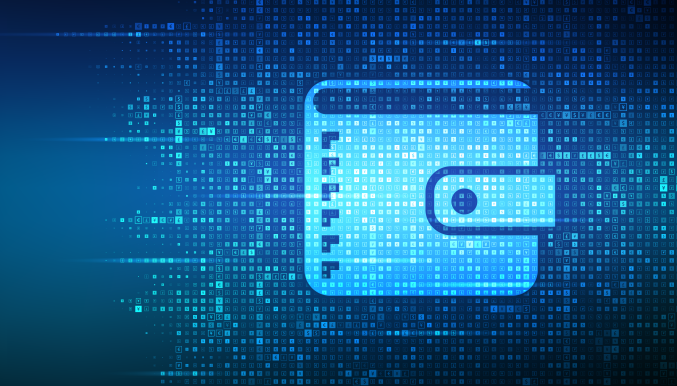Bitcoin (BTC). Bitcoin (BTC), is a decentralized digital currency which relies on a peer-to peer network (P2P) for processing and validate transactions. Bitcoin was the first cryptocurrency to be decentralized and remains the most well-known. USDT (Tether) is a stable coin which is linked to the US Dollar It is the currency whose value is expected to be stable when compared to the US dollars. USDT is available on various blockchain networks including Omni (a Bitcoin-based system), Ethereum (ERC-20), Omni, and many other networks.
Ethereum (ETH): Ethereum is an open source, decentralized blockchain platform that allows the development of smart contracts as well as decentralized applications (DApps). Ethereum can be used to create and trading of custom-designed tokens and also Ether (ETH) the Ethereum's own cryptocurrency.
Litecoin LTC: Litecoin - A decentralized digital currency that is based on Bitcoin However, it has certain key differences, such as the speedier block generator and a unique algorithm for hashing.
Monero (XMR) is a privacy-focused cryptocurrency, uses various features like secure addresses, ring signatures and other security options to improve the security and privacy.
TRON (TRX), A decentralized blockchain platform and cryptocurrency that allows the development, use and sharing decentralized applications (DApps) and content sharing and more. TRON is aiming to create a global digital content platform with blockchain technology and peer-to-peer (P2P) technology. See the best ltc wallet app for website info.

10 Things You Should Know About Bitcoin Wallet Apps
Goal: The goal of bitcoin wallet apps is to store and send bitcoins, which is a digital decentralized money, and to receive them. There are a variety of wallets, which include physical wallets as well as paper ones.
The key features: Make sure to choose an account that has security features (e.g. Secure backup and recovery) and ease of use are the most important features of an account.
Safety: Store your bitcoins in a safe wallet that has strong security measures and consider using two-factor authentication.
Keys for public and private A bitcoin wallet will include a private and public key. This key is used for sending bitcoins and receiving bitcoins. Keep your private key safe and secure.
Receiving bitcoins
Bitcoins to send by entering the public key of the person you wish to send it to as well as the amount you want to transfer.
Transactions
Fees There are wallets that charge fees for transactions. Before choosing one, take into consideration the charges.
Updates: It is recommended to regularly update your wallet in order to keep up-to-date security features and bugs fixed. View the best trusteeglobal.eu/usdt-wallet/ for website recommendations.

10 Things You Need To Learn About Lithiumcoin Wallet
Purpose: A Litecoin wallet is a software application used to store, send, and receive Litecoin (LTC), a cryptocurrency.Types: There are different types of Litecoin wallets, including software wallets, hardware wallets, and paper wallets.
Key features: A Litecoin wallet should offer security features, such as encryption. encryption as well as backup and retrieval options ) and user-friendliness.
Safety: Securely store your LTC in a secure wallet. You may want to consider activating two-factor authentication. Be sure that your private key is secure and secure.
Keys that are private and public: A Litecoin wallet includes a public key for receiving LTC and a privately held key to access and send LTC.
LTC Reception Sharing your Public Key with the Sender to Receive LTC
Sending LTC Enter the recipient's Public Key as well as the amount you wish to send.
Transactions
Speed: Litecoin transactions run faster than Bitcoin transactions. In general, transactions take about 2.5 minutes to confirm.
Fees: Litecoin transactions will incur lesser costs than Bitcoin transactions. This is what makes Litecoin an appealing option for micropayments. Check out the best Trustee Plus for more examples.

10 Things To Learn About A Tron Application And Wallet
Purpose: A TRON (TRX) wallet is a software application used to store, send, and receive TRON, a decentralized blockchain platform and cryptocurrency.Types: There are different types of TRON wallets, including software wallets, hardware wallets, and paper wallets.
Key features Key features: A TRON wallet should include key features like security (e.g. Key features: A TRON wallet should offer security (e.g. encryption), backup and recovery options and the ease of use.
Safety: Securely store your TRX in a secure wallet. Consider enabling two-factor authentication. Make sure your private keys are safe and secure.
Public and private keys The wallet TRON contains both an address public that can be used to send TRX and a private key which can be used to gain access to and send TRX.
Receiving TRX
Sending TRX: To send TRX, enter the recipient's public address and the amount you want to send.
Transactions: Any transactions that are made using a TRON wallet will be registered in the TRON Blockchain which is a publicly accessible ledger that records every TRX transactions.
Decentralized Applications: TRON supports the creation of and the use decentralized applications (DApps). These applications are built on the TRON blockchain and run on its native cryptocurrency, TRX.
The speed of TRON is the most important aspect. It can handle large quantities of transactions. Additionally, it has a the fastest, most efficient blockchain that can process thousands of transactions in a second. See the best xmr wallet app for site tips.

Differences Between A Usdt Erc-20 Wallet And Tether Erc-20 Wallet
USDT: USDT, commonly called Tether, is a stable coin that is linked to US Dollars. Its value is not subject to fluctuations in relation to US$. USDT is accessible on a variety of blockchain networks, such as Omni (a Bitcoin network), Ethereum (ERC-20), and Omni (a Bitcoin based network). ERC-20 - ERC-20 is a technological standard which allows smart contracts to be created on the Ethereum Blockchain. ERC-20 tokens are stored in Ethereum wallets, and can also be included in USDT.
USDT ERC-20 wallet - USDT ERC-20Wallet is a computer program that stores ERC-20 compliant USDT tokens on Ethereum.
The Tether ERC-20 wallet: The Tether ERC-20 ERC-20 wallet is a different name for the USDT ERC-20 pocket. It holds the stablecoin of Tether in a wallet that follows the ERC-20 standard.
Compatibility. You'll need Ethereum-compliant USDT tokens to access the USDT ERC-20 wallet. You must also have Tether tokens that are ERC-20-compliant in order for use with the Tether ERC-20 wallet.
Functionality: Both wallet types provide the same functions. You can send and receive USDT tokens. You can also look up your transaction history as well as check your balance. However, each wallet provider may have different features and designs.
Comments on “Free Reasons For Deciding On Crypto Wallets”